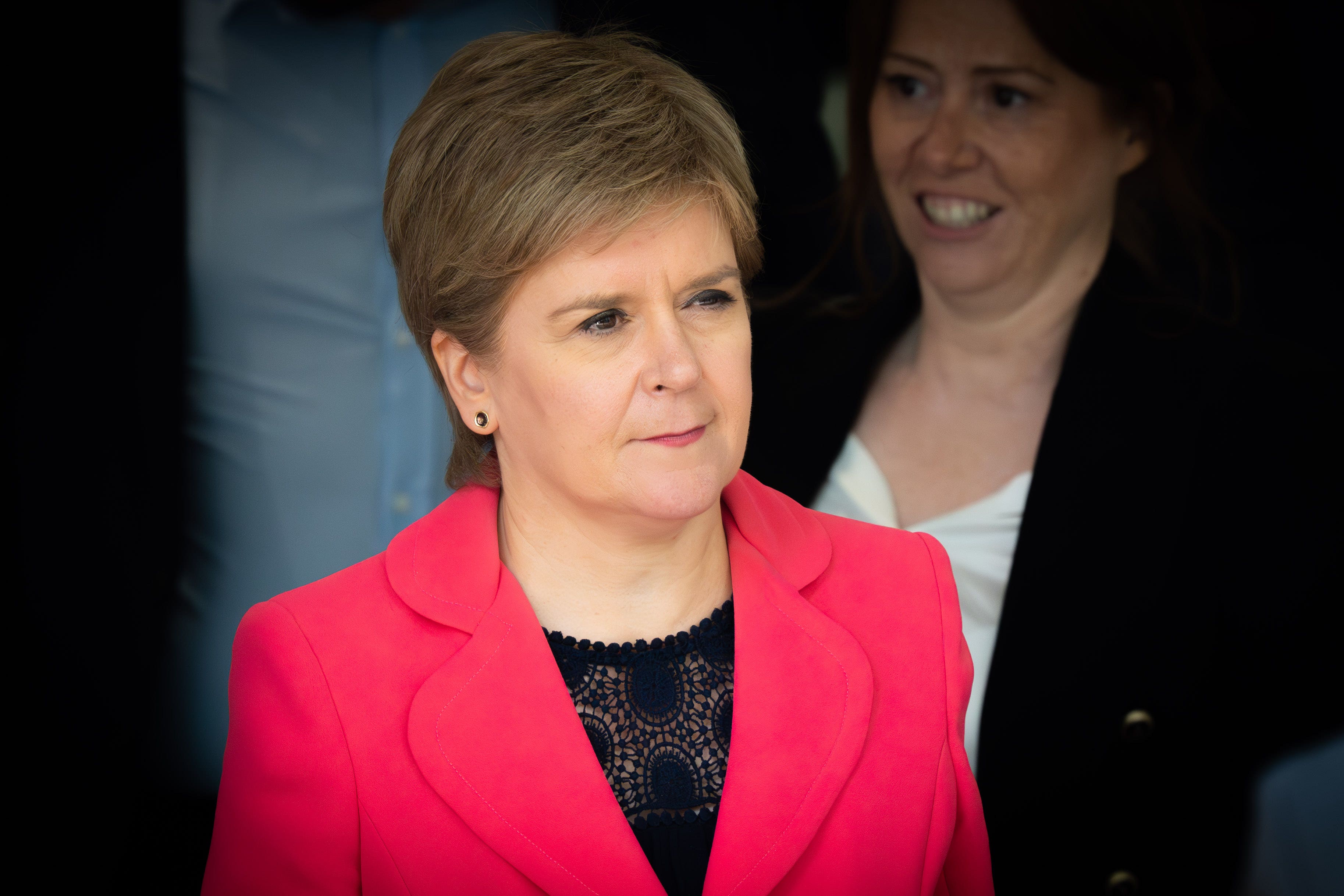Scotland was not prepared for non-flu pandemic, Sturgeon tells Covid inquiry
She also said she regretted having to divert resources from emergency planning to preparing for the potential of a no-deal Brexit.

Scotland had no plan for a non-flu pandemic ahead of Covid-19 arriving in the country in 2020, Nicola Sturgeon has told a public inquiry.
The former SNP leader, who was Scotland’s first minister for the duration of the pandemic, told the UK Covid-19 Inquiry there was “thinking” within government around how to deal with infectious diseases which were not flu before the outbreak, but nothing was ever properly laid down in documents.
Giving evidence to the inquiry in person, she also conceded a commitment by her government to review what lead counsel Hugo Keith termed as the UK’s “sole strategy” for a possible influenza pandemic written in 2011 never happened.
She said she believed, however, that even if the document had been updated to consider other possible non-flu pandemics, it would not have radically changed.
“The 2011 four-nations plan was not updated,” she said, adding: “In my view, had that plan been updated, I do not think it would have changed substantially.
“A review would not have changed the fundamental assumptions or planning or modelling at the heart of it.”
Asked if she agreed with other inquiry participants who previously described the plan as “wholly inadequate”, Ms Sturgeon replied: “In summary, yes. The plan was for a different type of pandemic than the one we unfortunately were confronted with.
“What there wasn’t, and I think this is the significant gap, is there was no set plan into how we dealt with a pandemic that had the features and characteristics of flu in terms of transmissibility, but also the severity and what we came to understand in terms of asymptomatic transmission of Covid-19.
“The questions in my mind, literally every day, are not so much did we lack a plan but did we lack capabilities for dealing with a pandemic of the nature of Covid-19. And obviously I’m talking there about contact tracing, testing, infrastructure in particular.”
Later in her evidence, Ms Sturgeon was quizzed about her government’s decision to divert resources from emergency planning in the lead up to the pandemic to prepare for the possibility of a no-deal Brexit.
“A significant amount of time, energy and resource was diverted into that from a range of other matters,” she said.
Asked why resources were pulled from emergency planning when the risk of pandemic had been identified as “the greatest risk facing the nation” in the national risk register, Ms Sturgeon said her government had “no choice”.
She added: “I deeply regret any consequences that had for our emergency planning in other areas.”
Questioned if this was a “false economy”, she answered: “I think every aspect of Brexit has been a false economy.”
She was then warned she was in a “witness box, not a soap box”.
It is expected Ms Sturgeon will be called upon later in the inquiry to give further evidence concerning her government’s response to the pandemic.
Her evidence on Thursday was followed by that of her deputy first minister during the pandemic, John Swinney.
Asked why there was “no real financial pandemic planning put in place for support or counter-measures”, Mr Swinney said the terms of the devolution settlement do not allow a reserve to be built up.
“The Scottish Government is specifically prevented from building up a reserve that it can deploy for eventualities of this type,” he said.
He said the UK Government’s economic intervention during the pandemic was “very welcome” and “saved many people’s livelihoods from great jeopardy”, but also demonstrated the scale of the financial challenge created by the pandemic.
Earlier, Sir Jeremy Farrar, a former member of the Scientific Advisory Group for Emergencies (Sage) which advised the UK Government during the pandemic, gave evidence.
He said having a so-called “red team” to constructively challenge scientific thinking “from the outside”, could add a different perspective to a pandemic response in the future.
He said this system worked well when he was part of a similar enterprise in the US.
Former Wellcome director Sir Jeremy said that Independent Sage – set up by former chief scientific adviser to the UK Government Sir David King – tried to work like a red team “but unfortunately, for reasons others can debate, sometimes it became more confrontational than perhaps was constructive”.
Bookmark popover
Removed from bookmarks